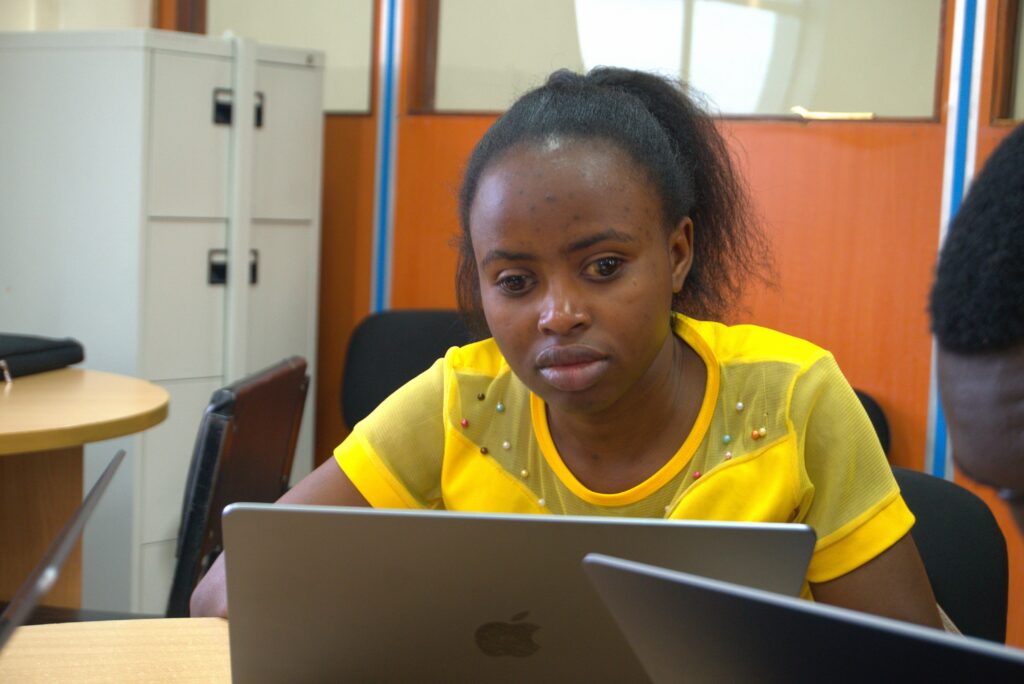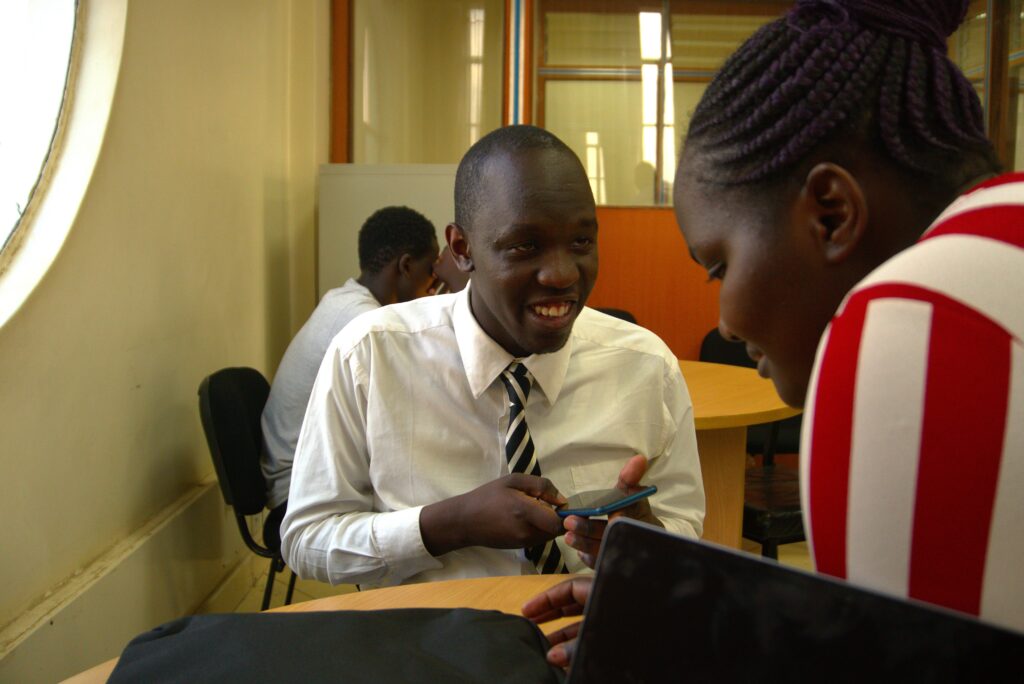Empowering Visually Impaired Law Students with Assistive Tech
inableAdmin
inABLE collaborated with Kenyatta University to conduct an intensive three-week assistive technology training for visually impaired law students. This program, now in its second cohort, aims to equip students with essential computer skills to enhance their independence and academic success.
With access to MacBook laptops, students are overcoming the limitations of traditional Braille, which can be bulky and lacks comprehensive resources, particularly in fields like law. Through this training, students are now better prepared to navigate their studies with efficiency and confidence.

The training took place from October 14 to October 31, 2024, at a dedicated room on Kenyatta University’s Parklands campus. This well-equipped space became the learning ground for seven Kenyatta University students, with two additional students from the University of Nairobi joining the cohort. Under the guidance of inABLE’s skilled instructors—Valary Olesia, Alex Njue, and Anthony Wambua—the students explored the functionalities of their MacBooks, learning to integrate them seamlessly into their academic routines.
The training followed a structured three-week curriculum focused on practical skills in MacBook accessibility and productivity tools. During the first week, students were introduced to the physical layout of the MacBook, including its keyboard, ports, and voice-over features. The voice-over interface became an essential tool for navigation, as students learned to adjust settings like pitch, language, and rate, making it easier to engage independently with their laptops.

In week two, the focus shifted to file and folder management, using the Finder app and the Pages application for word processing. Students learned to create, format, and edit documents, and navigate through templates, enhancing their productivity and organizational skills.
“The final week was dedicated to mastering spreadsheets using the Numbers application. Students gained proficiency in cell referencing, data entry, and formula calculations, all key skills for legal research and document preparation. By the end of the course, they could confidently use MacBook’s accessibility features and productivity tools,” Valary explains.
Given the intensive nature of the training, it was recommended that future cohorts extend the duration to cover additional modules and reinforce the knowledge gained. Students will now participate in a mentorship program, during which inABLE will monitor their progress and the impact of the MacBook on their academic performance.
The assistive technology training at Kenyatta University marked a significant step forward in creating an inclusive learning environment for visually impaired law students. The skills they have acquired will enable them to engage with their studies more effectively and independently, transforming their educational journey. inABLE remains committed to supporting these students as they advance in their studies and empowering them to achieve their career aspirations.
Compiled by Alex Njue (Computer Instructor at inABLE) and Lily Ronoh-Waweru, Strategic Communications Specialist